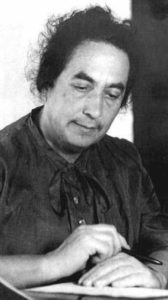Prince of Torah
 Shmaryahu Yosef Chaim Kanievsky (1928-2022) was born in Pinsk (then Poland, now Belarus) and made aliyah with his family to Israel when he was six years old. He never left the Holy Land thereafter. His father was the great “Steipler Gaon”, Rabbi Yaakov Kanievsky, and his maternal uncle was the famed Chazon Ish. Following in their footsteps, Kanievsky became a rabbi, too, and was recognized as a sharp scholar at a young age. As a yeshiva student during Israel’s Independence War, he briefly served in the newly-formed IDF and defended Jaffa (though he did it spiritually, spending most of the time at his post learning Torah!) He then married the daughter of another great rabbi, Rav Elyashiv. Rabbi Kanievsky typically studied Torah for about 17 hours a day. He would wake up at midnight to pray Tikkun Chatzot (mourning for the destruction of the Temple and the exile of the Jewish people) and then learned for the rest of the day, starting with eight (double-sided) pages of the Talmud Bavli, followed by eight pages of the Talmud Yerushalmi, and then selections from a number of Jewish legal codes, the Tanakh, as well as Midrashic and Kabbalistic texts. What normally takes a typical rabbi a lifetime to study, Rav Kanievsky would complete every year! He was famous for his total mastery of all Torah texts, with photographic memory and an ability to mentally “scan” these texts for any word or phrase. He was often called the “Prince of Torah”. In addition to his studies, Rav Kanievsky wrote over a dozen popular books and commentaries. Hundreds of people would line up daily to ask questions and request blessings. His blessings were known to be fulfilled, often miraculously, and his legal rulings were followed closely by religious Jews, especially those in non-Hasidic Ashkenazi communities. He regularly responded to thousands of letters, too. Rav Kanievsky lived simply in a small apartment in Bnei Brak his whole life. After the passing of Rav Shteinman in 2017, he was widely-recognized as the supreme authority on Jewish law, and the top gadol hador. Sadly, the Prince of Torah passed away shortly after the conclusion of Purim last week. He had completed his yearly study cycle the previous day. Some 750,000 people came to his funeral, making it among the largest in Israel’s history.
Shmaryahu Yosef Chaim Kanievsky (1928-2022) was born in Pinsk (then Poland, now Belarus) and made aliyah with his family to Israel when he was six years old. He never left the Holy Land thereafter. His father was the great “Steipler Gaon”, Rabbi Yaakov Kanievsky, and his maternal uncle was the famed Chazon Ish. Following in their footsteps, Kanievsky became a rabbi, too, and was recognized as a sharp scholar at a young age. As a yeshiva student during Israel’s Independence War, he briefly served in the newly-formed IDF and defended Jaffa (though he did it spiritually, spending most of the time at his post learning Torah!) He then married the daughter of another great rabbi, Rav Elyashiv. Rabbi Kanievsky typically studied Torah for about 17 hours a day. He would wake up at midnight to pray Tikkun Chatzot (mourning for the destruction of the Temple and the exile of the Jewish people) and then learned for the rest of the day, starting with eight (double-sided) pages of the Talmud Bavli, followed by eight pages of the Talmud Yerushalmi, and then selections from a number of Jewish legal codes, the Tanakh, as well as Midrashic and Kabbalistic texts. What normally takes a typical rabbi a lifetime to study, Rav Kanievsky would complete every year! He was famous for his total mastery of all Torah texts, with photographic memory and an ability to mentally “scan” these texts for any word or phrase. He was often called the “Prince of Torah”. In addition to his studies, Rav Kanievsky wrote over a dozen popular books and commentaries. Hundreds of people would line up daily to ask questions and request blessings. His blessings were known to be fulfilled, often miraculously, and his legal rulings were followed closely by religious Jews, especially those in non-Hasidic Ashkenazi communities. He regularly responded to thousands of letters, too. Rav Kanievsky lived simply in a small apartment in Bnei Brak his whole life. After the passing of Rav Shteinman in 2017, he was widely-recognized as the supreme authority on Jewish law, and the top gadol hador. Sadly, the Prince of Torah passed away shortly after the conclusion of Purim last week. He had completed his yearly study cycle the previous day. Some 750,000 people came to his funeral, making it among the largest in Israel’s history.
Words of the Week
In a lottery, it is not the ticket that wins but the person.
– Rabbi Chaim Kanievsky


